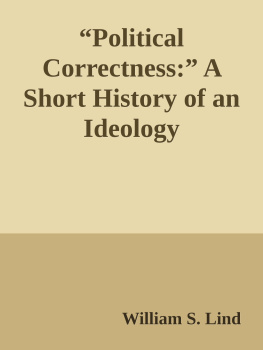1. The Hellenic Peoples in General
A HISTORY of political theories must begin with the thought of that brilliant aggregation of Mediterranean peoples whose astonishing development in intellectual culture, twenty-three centuries in the past, is still the wonder and despair of civilized man. Probably in no field save that of art are Greek ideals more highly appreciated at the present day than in political theory. This is in some measure due to the wide prevalence of democratic thought and feeling; but more decisive is the fact that the great thinkers of Hellas explored the entire height and depth of human political capacity and outlined the principles which at all times and in all circumstances must determine the general features of political life. With all its universality, however, Hellenic thought, like that of every other age and people, was determined primarily by the institutions amid which it developed. The only path of approach to an accurate apprehension of political philosophy is through political history. Our attention must, therefore, first be devoted to the salient facts in the growth of Greek constitutions.
The opening of authentic history, about 700 B.C., reveals the Hellenic world as a group of little communities scattered about among the hills and valleys of the peninsula which they afterward made so famous, and on the adjacent coasts and islands. Politically each community was isolated and independent; but the tradition of a common origin pervaded them all and was the basis of various social and religious institutions. In the peninsula itself some tendency was indicated toward the creation of larger political aggregates through the voluntary coalescence of neighbouring communities or through the forcible absorption of the weaker by the stronger. On the other hand, the practice of colonization in distant places both reduced the absorptive power of the mother city, and, through the autonomy of the colony, confirmed the influence of the characteristic type. The ;;, or city-state, already fixed the lines within which the theory and practice of Hellenic politics were always to move.
In the period now under consideration no single form of government was universal throughout the various communities. But in practically all the more progressive and powerful states, save Sparta, some species of aristocracy or oligarchy prevailed. The patriarchal kingship, which must have been characteristic of the times depicted by Homer, had disappeared, and supreme authority was vested in a relatively small number of privileged persons, whose distinction was based on social or religious tradition. The power wielded by these aristocracies was by no means purely political. The communities themselves were still permeated by the ideas of family and clan relationship, and the aristocratic government expressed merely the recognition of general preminence to certain families and clans. The heads of these social organizations constituted the body which regulated the whole social, economic, religious and political life of the community. This aristocratic type was characteristic of the Hellenic world during the seventh century B.C.
In the succeeding century the process of social evolution resulted in the general prevalence of another governmental type: aristocratic government was succeeded by tyrannic. Two causes figured largely in this transformation. On the one hand the growth and prosperity of the cities, the expansion of their commerce, and the general intellectual development introduced elements into social thought and structure which tended steadily to undermine the moral foundations of the old system. On the other hand, the degeneracy and dissension that were manifested in the aristocracy itself gave frequent opportunity for an able and ambitious man to take the power into his individual control. Practically every important city of the Hellenic world ( Sparta again being a notable exception) passed under the sway of a tyrant. Monarchy thus became again the prevailing type of government; unlike the Homeric king, however, the tyrant had in most cases no support whatever in social tradition or religious sentiment, but rested his authority on force pure and simple. The very fact of tyrannic power, therefore, must have had much influence in promoting the rationalization of political thought in removing political reflection from its ancient channel to that which was marked out by the primary consideration, not of the right of the governor, but of the welfare of the governed.
The violence and cruelty which characterized the rule of the tyrant were at first displayed chiefly toward the aristocracythe supplanted ruling class. In time, however, the whole subject population felt the full force of his arbitrary sway. The many and the few were brought by common suffering to combine for the common relief. One by one the tyrants were expelled from Hellas and a new page was unrolled in Greek political experience. The new era presented, however, no such uniformity as that of the preceding periods. No single type of government attained general recognition; but instead there developed that conflict between democracy and oligarchy which persisted until the distinctive political character of Hellas disappeared. The coalition of aristocracy and populace that overthrew the tyrants vanished at once before the problem of providing an organization to take the place of that which was destroyed. To the aristocrats it seemed obvious that the ancient power of the privileged classes must be restored. But the age of the tyrants had been an age of enormous advance in material prosperity and intellectual culture, and the pretensions of the old aristocracy, none too favourably regarded when the tyrant came, were violently resisted when he disappeared. The perturbations of the Persian wars gave new wrenches and strains to all the old ideals, and from the general unsettlement arose that democratic wave which threatened to ingulf all Hellas. Conservatism rallied, however, and resisted the shock, and under the leadership of Sparta maintained some hold on power till the coming of the Macedonian. It was in the midst of the widespread conflict between aristocracy and democracy that the most brilliant contributions of Greek thought to political theory began to appear.
While the internal politics of each of the citystates had made familiar the facts of aristocracy, tyranny, oligarchy and democracy, the relations of the states with one another had evoked the conception of a Hellenic national unity. From the earliest times community of language, of oracles and of religious worship had served to mark off the Hellenes from the outer world which they called barbarian, and to impress upon their consciousness the idea of race unity. But only under pressure of danger from the Persian power did this consciousness express itself in institutions of a political character. First to Sparta and then to Athens was assigned by general consent of the threatened states a hegemony, or ill-defined leadership in the operations against the enemy. Each of the leading states in turn sought to expand its military hegemony into an imperial dominion, but neither attained more than a temporary and limited success. Political unity through federation might have been achieved if the two strongest states could have coperated harmoniously; but socially and intellectually Athens and Sparta had nothing in common, and politically they embodied the opposite extremes of democratic and aristocratic tendency. Hence the rivalry which wrecked Hellas in the Peloponnesian War. The idea of political unity, however, by no means disappeared. It played a part in the general movement of Hellenic politics throughout the supremacy of Sparta and of Thebes ( 404-362 B.C.), and furnished in some sense a theoretical basis for the absorption of the Greek states by Macedon. That the idea received no recognition in the political science of the day is largely due to the fact that in every case in which the idea had been to any extent realized, brute force had been conspicuously the determining factor in the result; and philosophy had not yet reached the stage where it could calmly analyze the workings of brute force.










